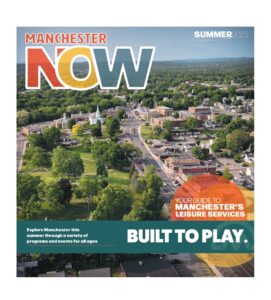How a Pandemic Changed Learning: Parenting Through Uncertainty
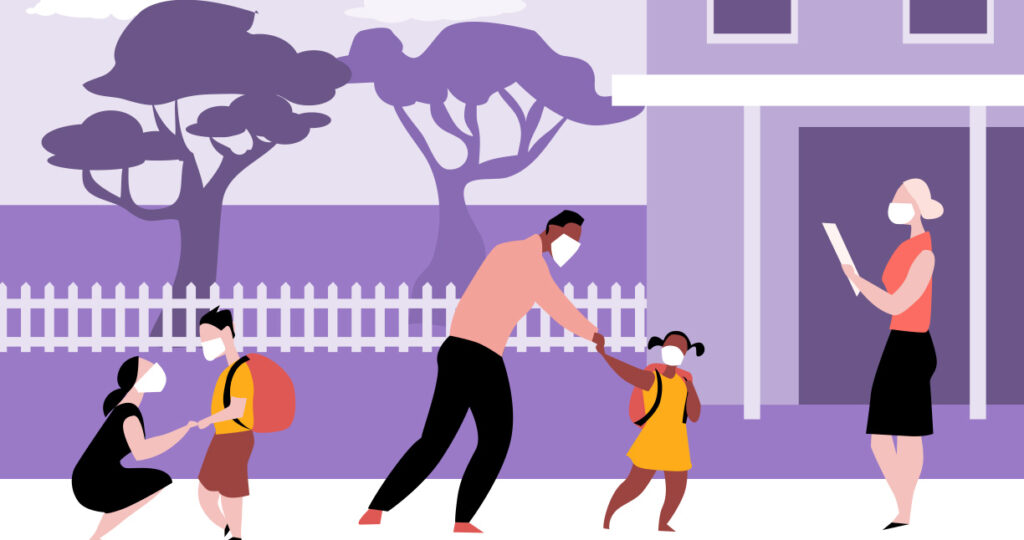
“Trying to be a parent right now is incredibly hard and incredibly sad. I just want to pick up my kids and tell them that this isn’t our reality.”
These thoughts, shared by Connie Anglin, mother of Keeney second-grader Ryan, are ones that countless parents face as their children remain in remote or hybrid learning due to COVID-19. After nearly a year of modified schooling, many parents are finding it increasingly difficult to cling to the norms of a pre-COVID world. To them, the idea that our current social landscape has become the “new normal” is a terrifying thought, especially as they have to prepare their children to enter such an uncertain world.
For parents such as Anglin, many of their worries lie in the social and academic development of their children. While many parents have seen growth since the onset of modified learning back in March of 2020, others remain worried about how modifications are putting their children at a disadvantage, especially in the formative years of early education. It is these fears, Anglin said, that make it impossible to avoid concerns about the consequences of another extended modified school year.
“I’m worried that there has been a lot lost,” Anglin said. “I fear that our younger children are losing out on developing their real-world skills, such as handwriting. I don’t want Ryan to only be able to read and write digitally.”
However, despite the inevitable academic shortcomings in Manchester Public School’s modified format, Anglin said that teachers have made an extraordinary effort to carry out their curriculum as they would in past years. If not for these efforts, the long-term consequences would be far more dire, Anglin noted.
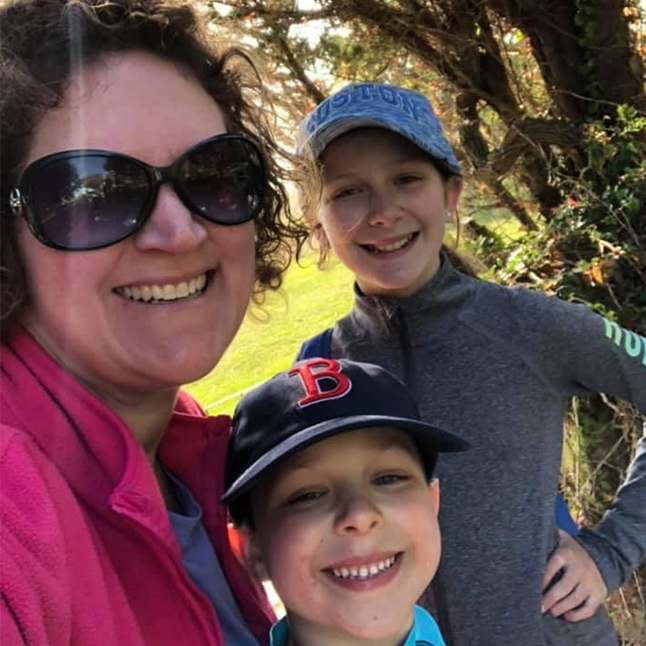
“Our children are losing out academically, but it is in no way a reflection on our school district. The teachers are doing the best they can with what they have available,” Anglin said.
From the onset of the modified school year, many parents worried that students who needed special accommodations or individualized instruction would be unable to receive such an education through hybrid or remote learning. Xhana Ogletree, mother to high school student Kennedy, said she worried whether a specialized education could be properly executed with such a heavily-modified learning format.

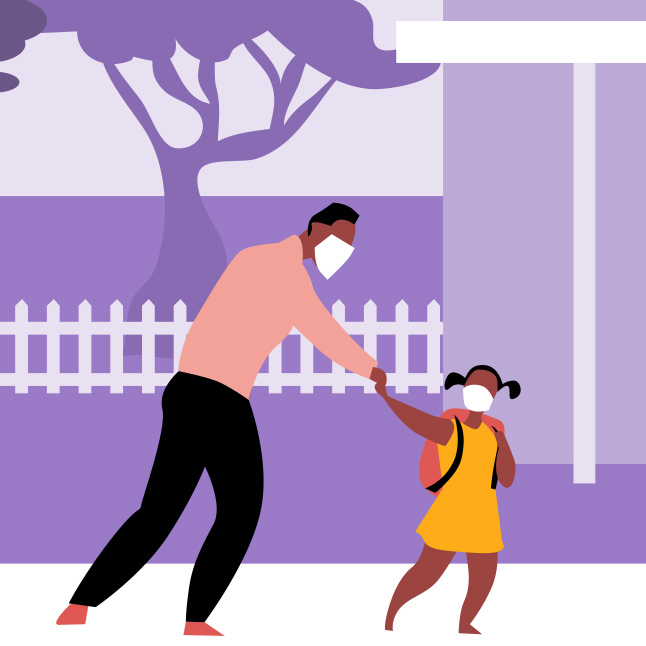
“I was initially worried, because it’s imperative that [students] receive a face-to-face education,” Ogletree said. “Many need a little more help to become accomplished academically.”
Kennedy attends Manchester Regional Academy (MRA), which is a highly-structured secondary school for at-risk students. While MRA is a small school, with approximately 75 enrolled students and a student-teacher ratio of 8 to 1, Ogletree said all educators have diligently worked to ensure that Kennedy receives an adequate and individualized remote education.
“It’s a small school, but the staff goes above and beyond,” Ogletree said. “They’ve kept in constant communication with me and they have shown me how to help out with Kennedy’s schooling.”
In Kennedy’s case, her teachers have gone above and beyond the usual duties of a high school teacher. On one occasion, after Kennedy’s laptop broke down, her teacher drove out with a replacement unit, ensuring that she wouldn’t fall behind her peers. Then during the holiday season, MRA’s teachers made care packages for their classes, delivering them right to the door of each of their students. It is these kinds of efforts that have helped to quell any extraneous worries about Kennedy’s schooling, Ogletree said.
“We all get burned out on technology. It’s good to disconnect and get those endorphins out.”
Xhana Ogletree Tweet
When it comes to ensuring that her daughter is adjusting outside of the classroom, Ogletree noted that several measures have been taken in order to prevent her from becoming bogged down by the stresses of a remote semester. One of the most prominent measures that Ogletree has taken- and one that is uniformly recommended by educators and other parents alike-is to ensure that Kennedy spends her free time disconnected from technology.
“We all get burned out on technology,” Ogletree said. “It’s good to disconnect and get those endorphins out.”
“I do just love Connecticut’s nature; that’s one of the things that makes our state so beautiful,” Ogletree said. “However, my biggest worry is that [our children] are getting too used to staying inside.”
Ogletree, who recently moved from Texas to Connecticut, said that Manchester’s many outdoor nature areas and recreation facilities have helped ease her family into maintaining a consistently active life. Areas such as Charter Oak Park not only allow her family to remain physically active, but they help to break up the monotony of a sedentary remote school day, Ogletree said.
As the modified school year continues deeper into the winter months, Ogletree’s concerns are becoming ever more relevant. Not only do the colder winter months impede on elongated outdoor leisure time, but COVID has also prevented the use of many indoor athletic facilities that aim to supplement this time. Town-run youth programs such as drop-in basketball and coed soccer, both of which are popular winter programs among Manchester’s children and young teens, have been canceled to ensure the health and safety of the community. Calvin Harris, a Senior Recreation Supervisor for Manchester’s Recreation Division and father of second grader Camden, said that COVID has impacted the way we view the outdoors.

“When it snows, are there kids who are going to want to go outside to build a snowman?” Harris asked. “There is some part of me that thinks that being entirely inside is the new norm.”
While it can be difficult to remain optimistic during such a turbulent time, Harris said that the progress of past months by our local communities has better prepared us for the coming months. Once our youth are able to return to some sense of normalcy, they will be better prepared to tackle any further obstacles that come their way, Harris said.
“We all need to be thankful for the essential workers in our communities, whether they be front-line workers or educators."
Calvin Harris Tweet
“I’m optimistic when looking ahead at the coming months. It’ll be huge when kids are able to see their classmates, friends and teachers again. They’ll get to return to their old normal and laugh and smile and enjoy themselves again,” Harris said.
While the past months have been full of all kinds of new challenges, Harris said that has seen Camden grow substantially to overcome difficulties. Camden, a second-grade student at Keeney Elementary School, has grown in remarkable ways, Harris said, ways that show the resilience and abilities of our young students.
“These kids have gathered so much knowledge, to the point that Cam has been able to gain some independence,” Harris said. “He has established that in this new normal, he can be responsible.”
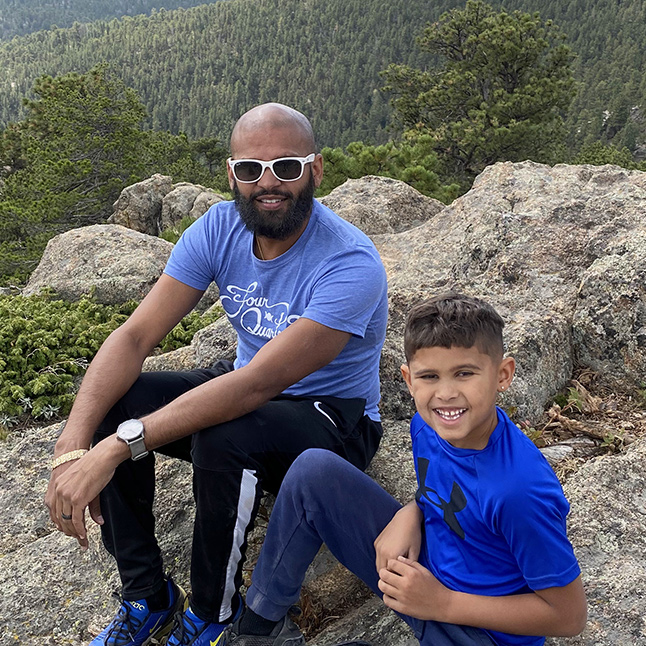
In words that echo the thoughts of many, Harris recognized the need for our local Manchester community to be grateful for the dedicated work of those within our town. Countless people have had to make sacrifices, including Harris’ wife Lindsay, who works as a nurse, in order to guarantee the safety and betterment of our entire town.
“We all need to be thankful for the essential workers in our communities, whether they be front-line workers or educators,” Harris said. “I want my wife to know that when she comes home, she is arriving at a home that isn’t in disarray. I don’t ever want her to worry about whether or not our child is falling behind.”
“These kids have gathered so much knowledge, to the point that Cam has been able to gain some independence,” Harris said. “He has established that in this new normal, he can be responsible.”
In words that echo the thoughts of many, Harris recognized the need for our local Manchester community to be grateful for the dedicated work of those within our town. Countless people have had to make sacrifices, including Harris’ wife Lindsay, who works as a nurse, in order to guarantee the safety and betterment of our entire town.
“We all need to be thankful for the essential workers in our communities, whether they be front-line workers or educators,” Harris said. “I want my wife to know that when she comes home, she is arriving at a home that isn’t in disarray. I don’t ever want her to worry about whether or not our child is falling behind.”
This is the second entry in a three-part series entitled How a Pandemic Changed Learning, which is focused on how COVID-19 has impacted local schools and how the affected have adapted to overcome new challenges. The series will focus on three of the most heavily-impacted groups in our schools: teachers, students & their parents.
Like this article?
Leave a comment
About Author

James Costa is the Neighborhoods & Families Coordinator for the Department of Leisure, Family, and Recreation. He began working with the division during his sophomore year at Manchester High School, and he is now a UConn graduate with degrees in Journalism & Film Studies.
Fun Fact #1: I won my car in a raffle during Manchester High School’s Project Graduation.
Fun Fact #2: My all-time favorite movies are All That Heaven Allows, Punch-Drunk Love & Twin Peaks: The Return.

